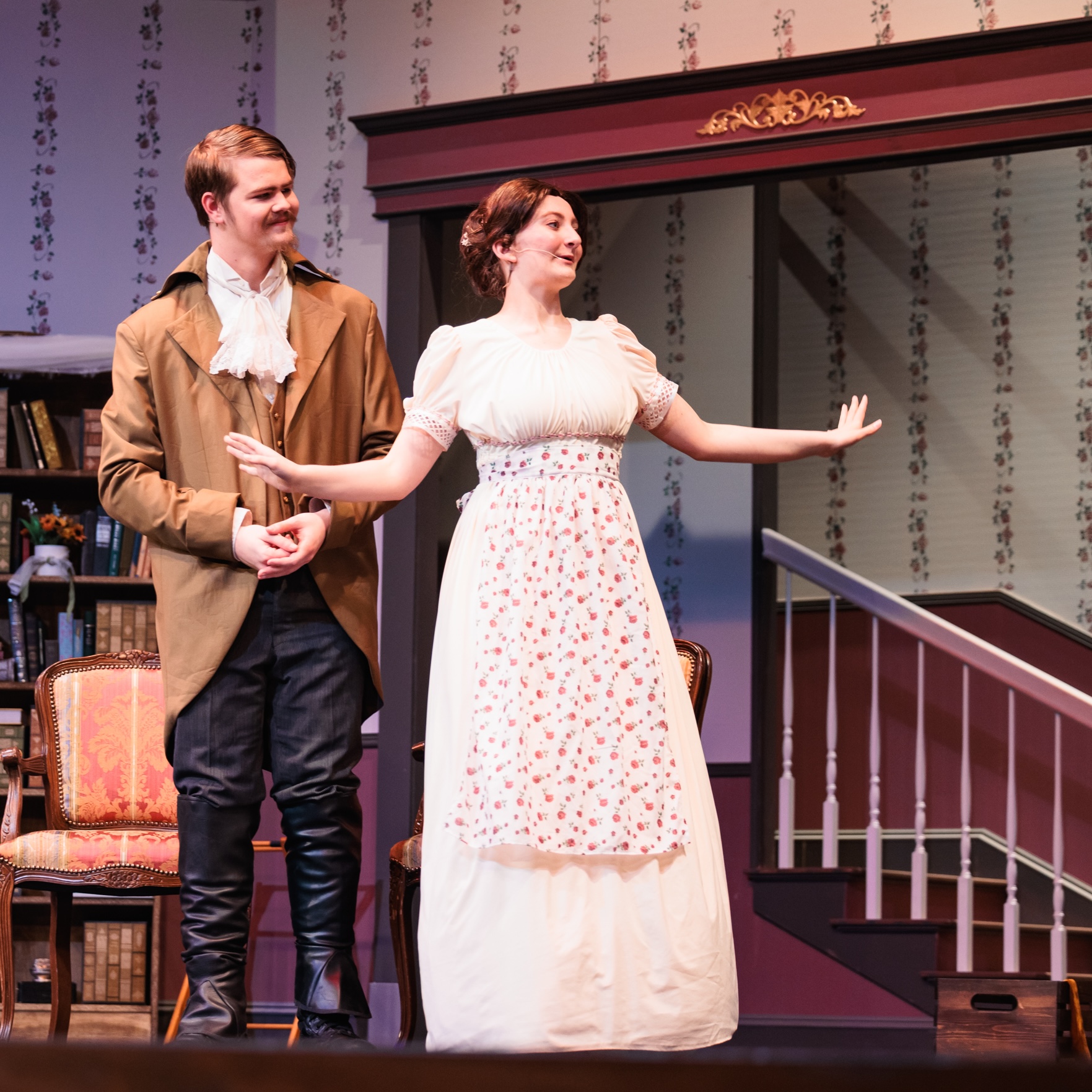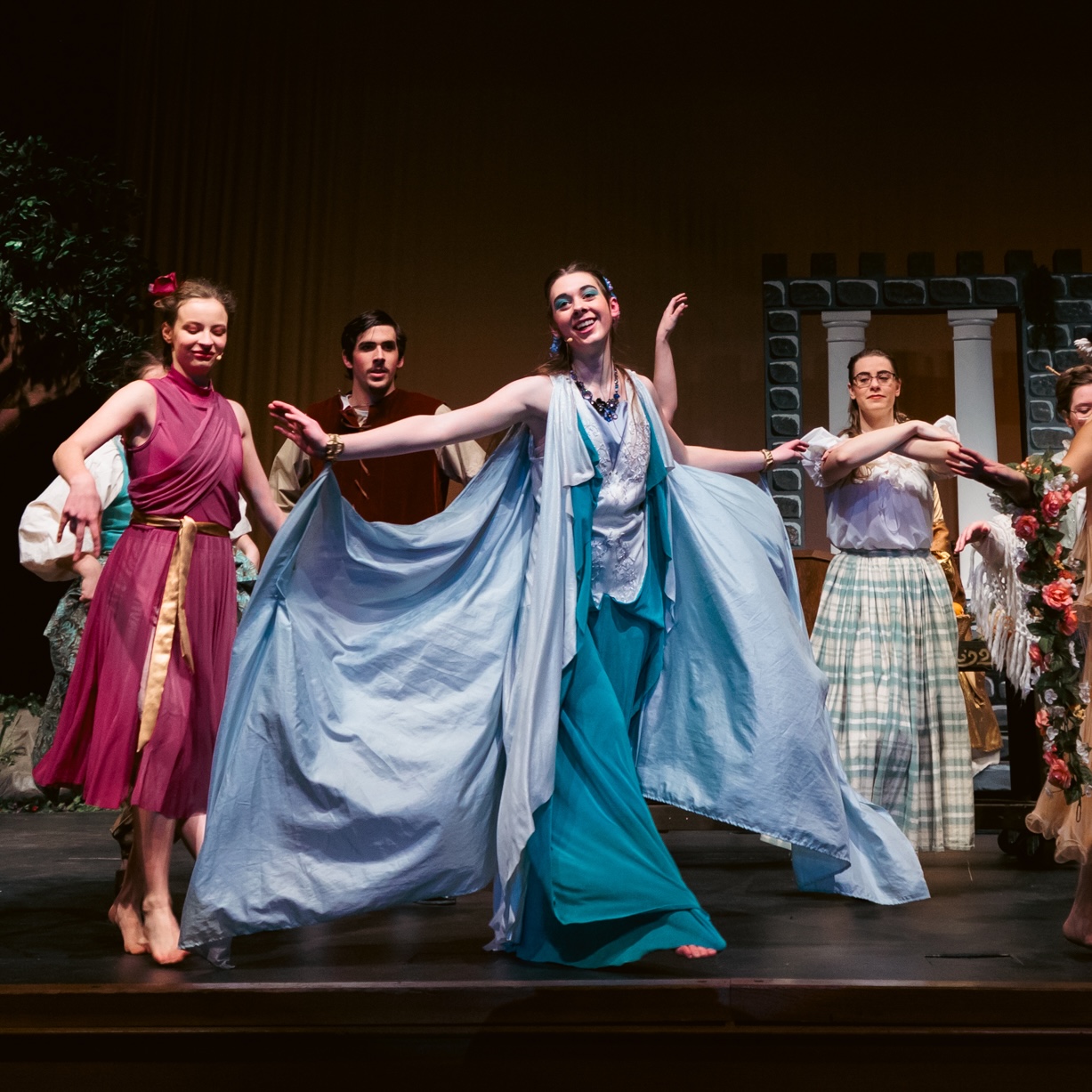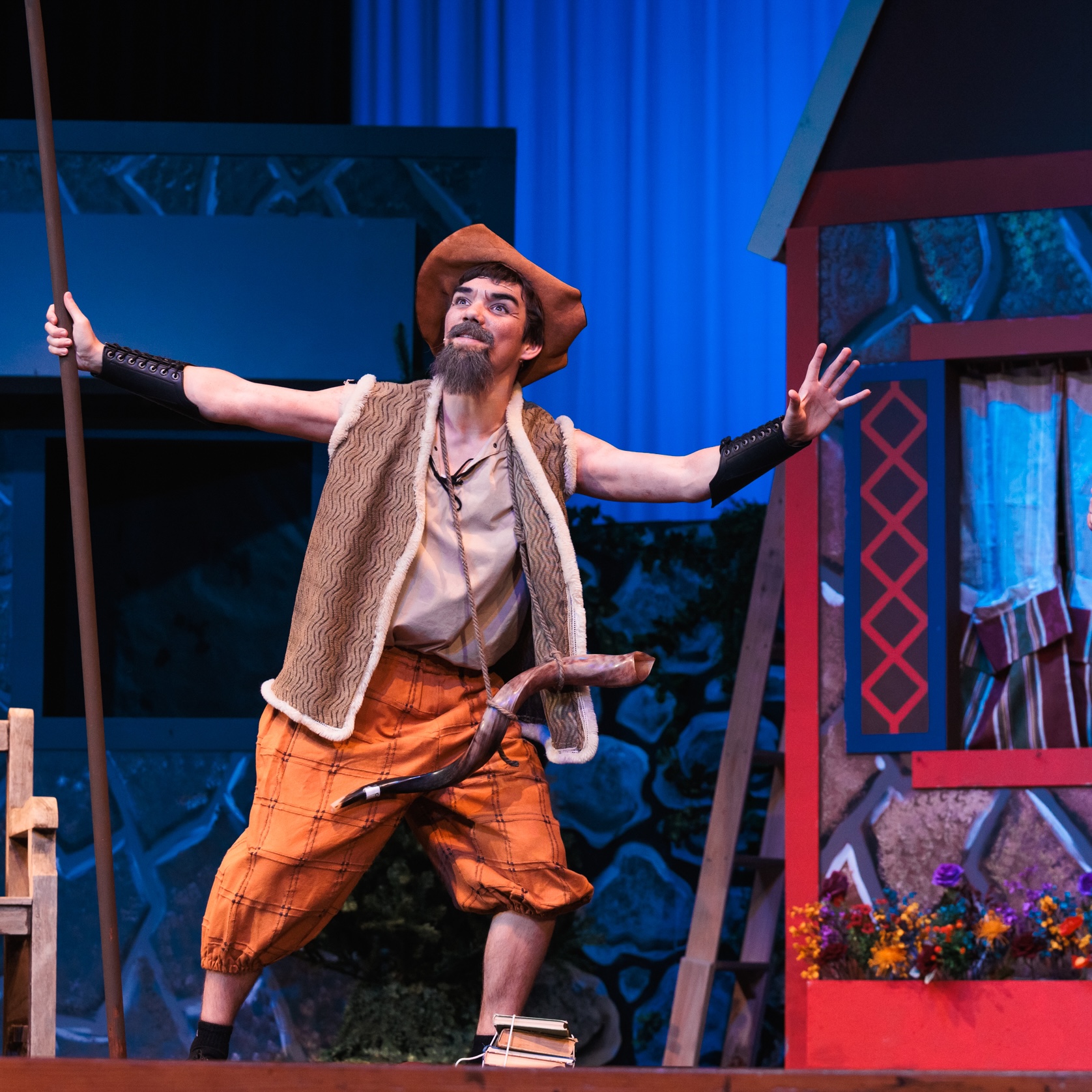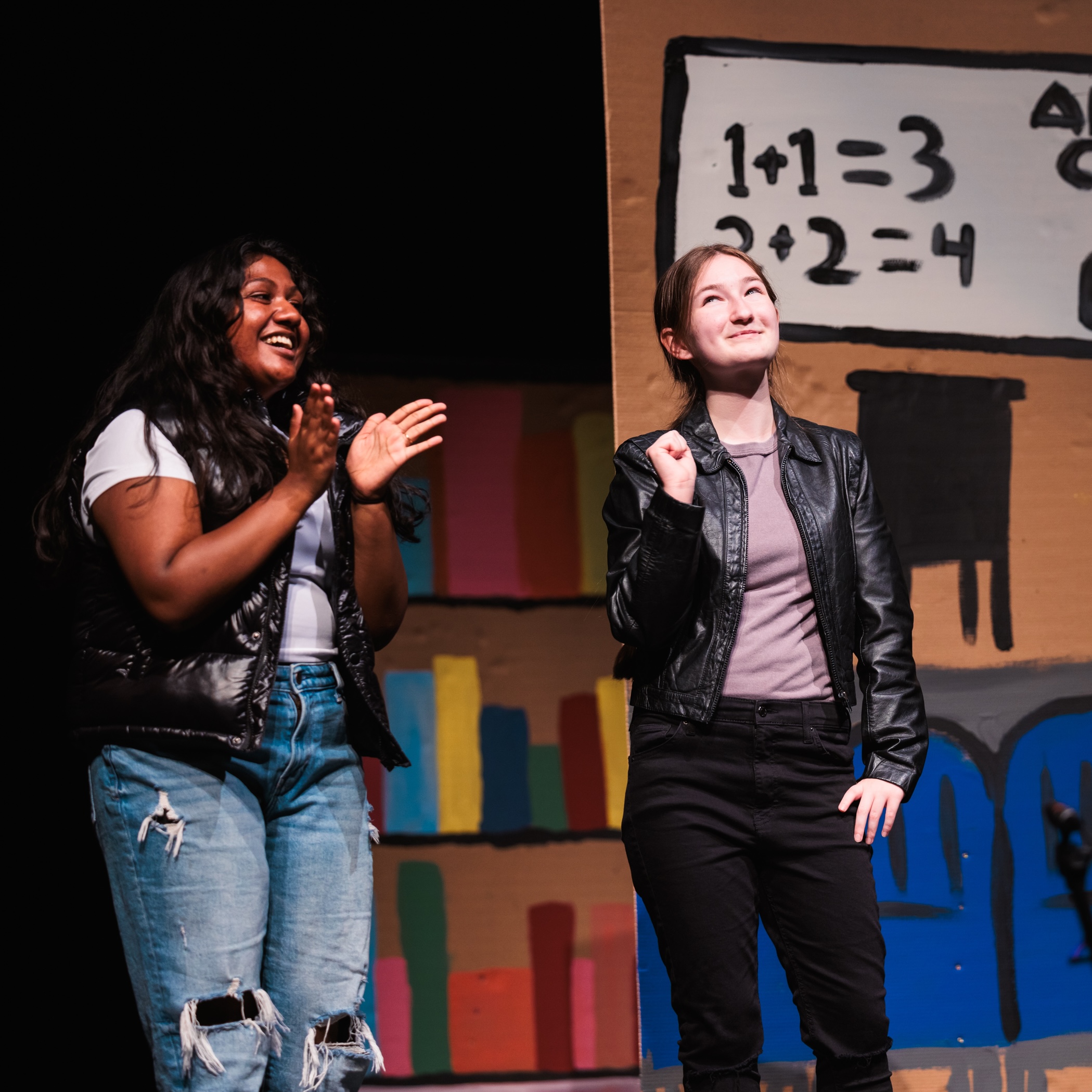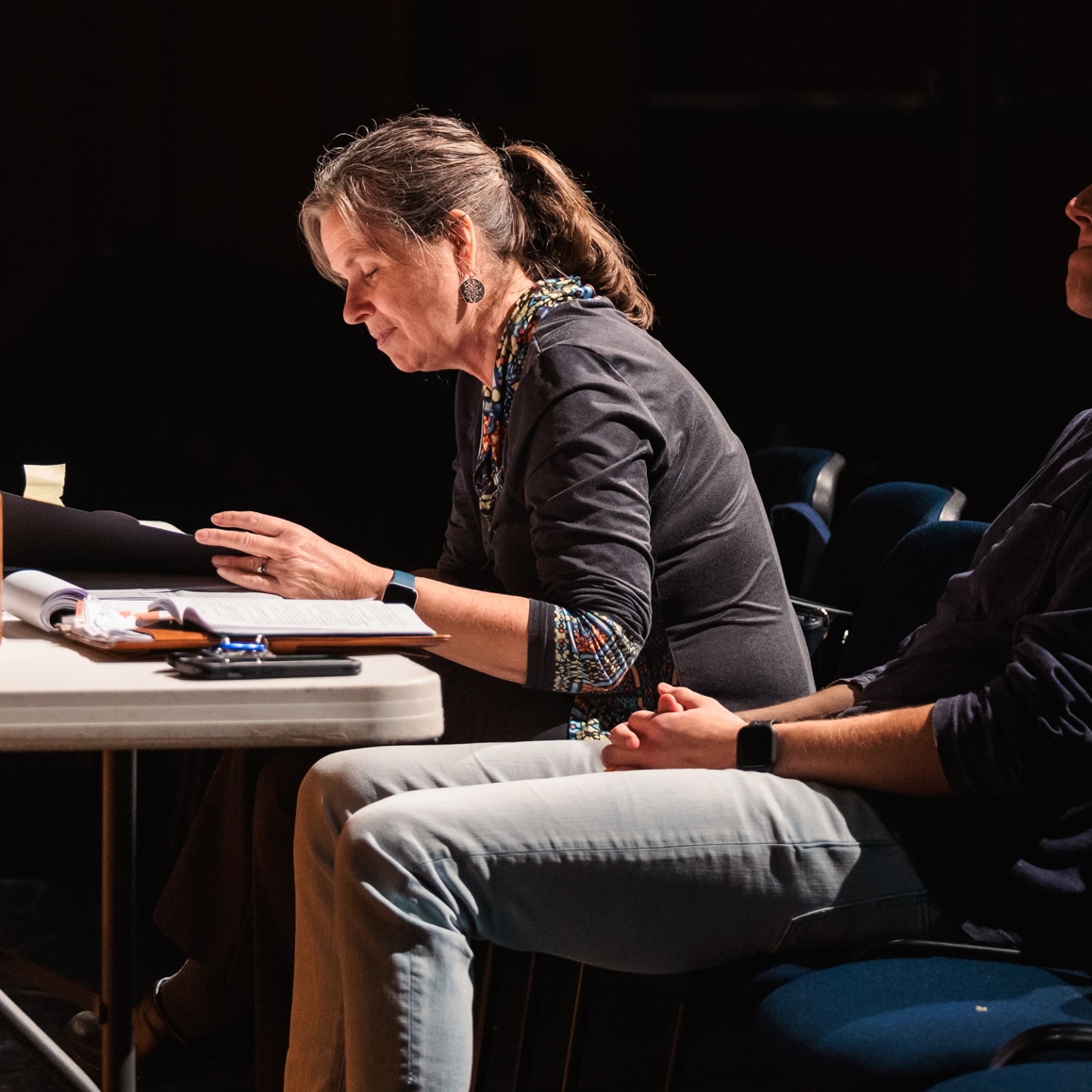Theatre Arts
Corban Theatre Arts provides a platform for students to use their talents to serve God in creative productions that display truths about the human condition, the world we live in, and the power of redemption. We do this through comedies, tragedies, dramas, and musicals.
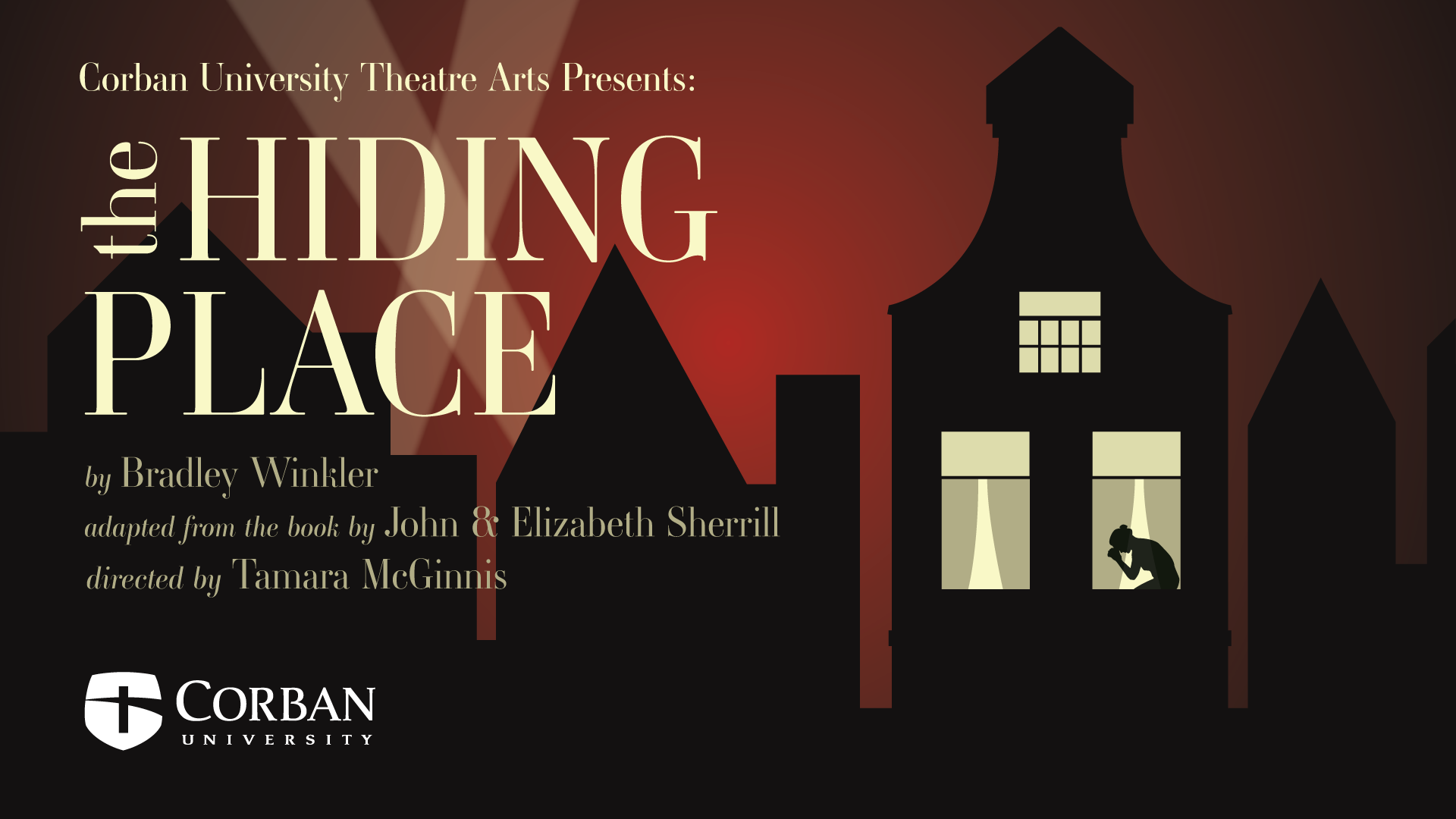
Spring Play: The Hiding Place
By Bradley Winkler
Adapted from the book by John & Elizabeth Sherrill
Directed by Tamara McGinnis
“There is no pit so deep that God’s love is not deeper still.” Corrie ten Boom, a middle-aged, Dutch watchmaker, said this, and she knew what she was talking about.
The Hiding Place play is the ten Booms’ story, starting when they began hiding Jews fleeing from the Nazis, continuing through the family’s incarceration in a concentration camp, and concluding with Corrie’s post war activities. Told against the backdrop of World War II, an example of the atrocities of which man is capable, Corrie’s story shines as a beacon of hope. Her story is not a denial of pain and suffering nor is it a series of religious platitudes. The Hiding Place records the choices of an average family who, out of their love for God, determined they must act. This ordinary family accomplished extraordinary things, taking seriously the idea that evil flourishes when good men do nothing.
Join Corban Theatre as we stage this moving story of love, courage, forgiveness, and hope.
Recommended for ages 12 and up.
Showtimes & Tickets
Matinee Performances:
March 5, 2026 | 10:30 a.m.
March 15, 2026 | 2:00 p.m.
Evening Performances:
March 6, 7, 13, & 14, 2026 | 7:30 p.m.
Ticket sales begin February 1.
Theatre at Corban
- Activates creativity and imagination.
- Challenges assumptions and explores empathy in new ways.
- Cultivates meaningful relationships.
- Develops skills like collaboration and interdependence through a tight-knit cast and crew.
- Reveals more about God’s character.
Contact Us
Past Productions:
- Alice – Rachel Ost
- American Primitive – William Gibson
- Anne of Green Gables – L. M. Montgomery; adapted by Joseph Robinette
- Antigone – Sophocles; adapted by Jean Anouilh
- Around the World in 80 Days – Jules Verne; adapted by Michael Hulett
- Arsenic & Old Lace – Joseph Kesselring
- Bear Witness – James Reach
- Busy Body – Jack Popplewell
- Camelot – Frederick Loewe & Alan Jay Lerner
- Cinderella – Rodgers & Hammerstein
- The Comedy of Errors – William Shakespeare
- The Cup of Trembling – Elizabeth Berryhill
- Curious Savage – John Patrick
- An Enemy of the People – Henrik Ibsen; adapted by Arthur Miller
- Esther: The Hebrew Queen – David Ian
- Everyman – David Ian
- Exit The Body – Fred Carmichael
- The Firstborn – Christopher Fry
- Fools – Neil Simon
- God’s Favorite – Neil Simon
- The Good Doctor – Neil Simon
- Good Wives – Louisa May Alcott; adapted by Peter Clapham
- Great Expectations – Charles Dickens; adapted by Barbara Field
- Harvey – Mary Chase
- The Hound of the Baskervilles – Sir Arthur Conan Doyle; adapted by Tim Kelly
- Humbug – John Wooten
- I’ll Leave It To You – Noel Coward
- The Importance of Being Earnest – Oscar Wilde
- Into The Woods – Stephen Sondheim & James Lapine
- Little Theatre’s Production of Hamlet – Jean Battlo
- Little Women – Louisa May Alcott; adapted by Peter Clapham
- Luxury Cruise – Fred Carmichael
- Macbeth – William Shakespeare
- A Midsummer Night’s Dream – William Shakespeare
- The Miracle Worker – William Gibson
- Much Ado About Nothing – William Shakespeare
- Murder in the Cathedral – T. S. Eliot
- A Murder Is Announced – Agatha Christie; adapted by Leslie Darbon
- Murder on the Orient Express – Agatha Christie; adapted by Ken Ludwig
- The Music Man – Meredith Wilson
- The Odyssey – Homer; adapted by Thomas Hischak
- Our Town – Thornton Wilder
- The Phantom Tollbooth – Norton Juster; adapted by Susan Nanus
- Pilgrim – John Bunyan; adapted by Tom Key
- Quilters – Barbara Damashek & Molly Newman
- Relative Values – Noel Coward
- Remember My Name – Joanna Halpert Kraus
- Robin Hood – Larry Blamire
- See How They Run – Philip King
- Sense & Sensibility – Jane Austen; adapted by Emma Whipday
- Sleeping Beauty, Briar Rose – Max Bush
- State Fair – Rodgers, Hammerstein, Briggs & Mattioli
- Suite Surrender – Michael McKeever
- Tartuffe – Jean-Baptiste Poquelin (Moliere)
- The Tragedy of King Saul – Vittorio Alfieri
- Twelfth Night – William Shakespeare
- You’re a Good Man, Charlie Brown – Charles M. Schulz; book, music, & lyrics by Clark Gesner





